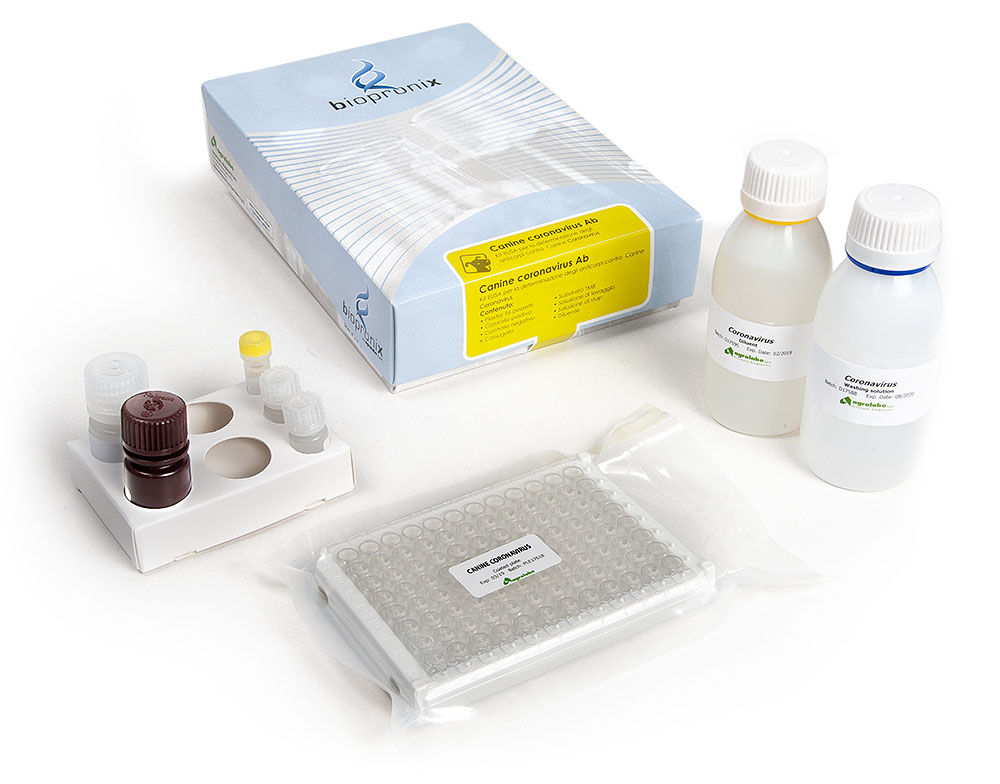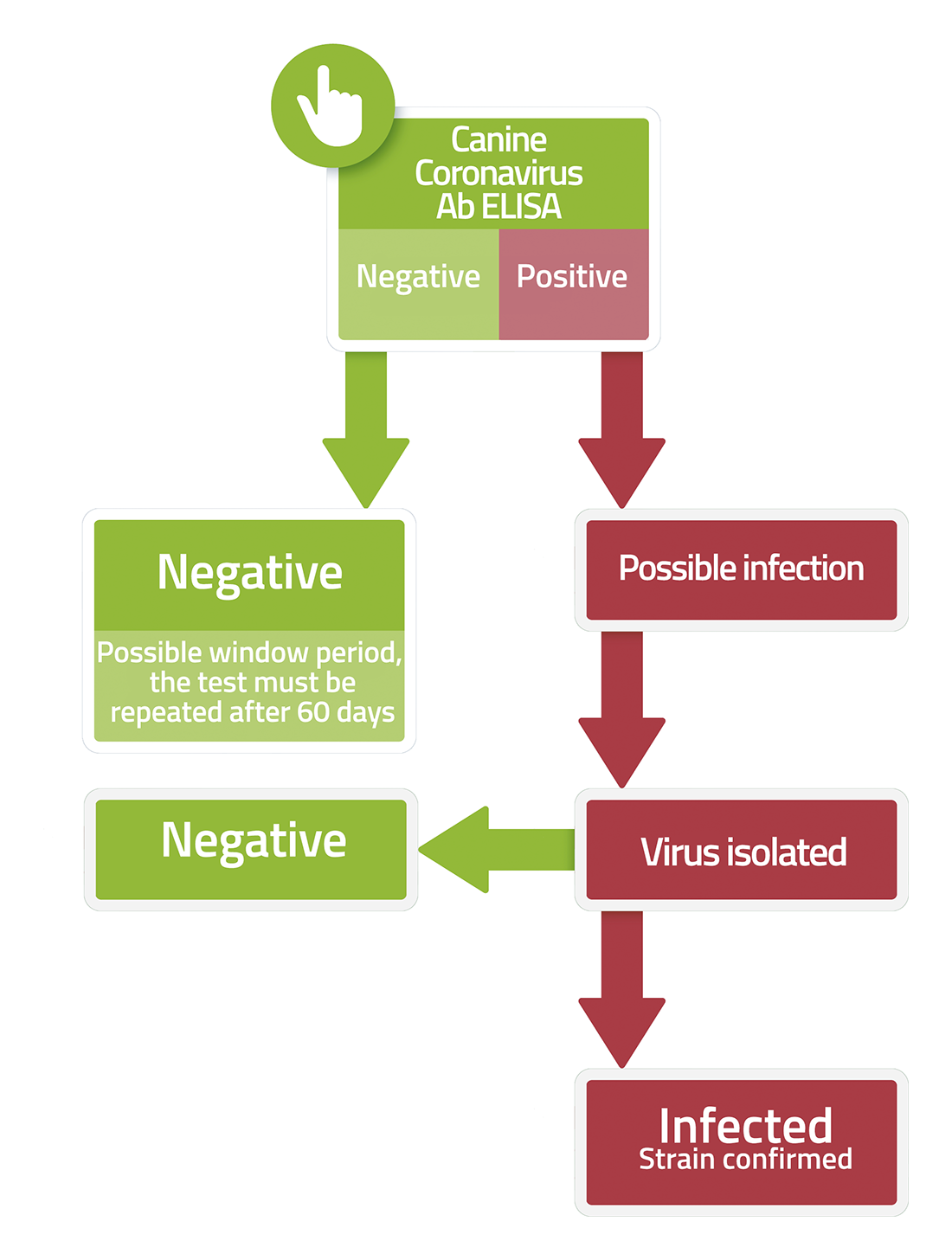Canine Coronavirus Ab ELISA
ELISA kit for the detection of anti-canine Coronavirus antibodies
This kit is based on the indirect ELISA immunoassay technique for the detection of anti-canine Coronavirus antibodies in canine serum or plasma.
Coronavirus causes infections of the digestive system in puppies and dogs, is transmitted only by oral-faecal route, and is able to persist in the environment for at least 6 months. The virus runs through the digestive system without being digested by stomach acids and settles in the intestine. This is its final seat, where it begins to reproduce and damage the dog organism.
Non-vaccinated dogs tend to be more exposed to the virus as well as those that have not completed the vaccination cycle. Farms often become coronavirus outbreaks. Subjects that live in dirty or overcrowded environments, such as kennels, may have more possibility to be infected.
Coronavirus symptoms are very similar to those of other viral or bacterial infections as well as intolerances and allergies ; thus, in most cases they may be confused with other pathologies.
The following symptoms may occur:
- depression,
- loss of appetite,
- weakness,
- vomiting and diarrhea.
.
When all the symptoms occur together or at least a couple of them persist, it is essential to take the dog to the vet for a check-up.
The symptoms are more severe in puppies. Prolonged diarrhea causes dehydration, enteritis and even death.
Coronavirus infection is difficult to diagnose since the symptoms are very similar to those of other diseases, such as parvovirus. Therefore, the veterinarian will carry out a test to check to exclude the presence of Parvovirus.

